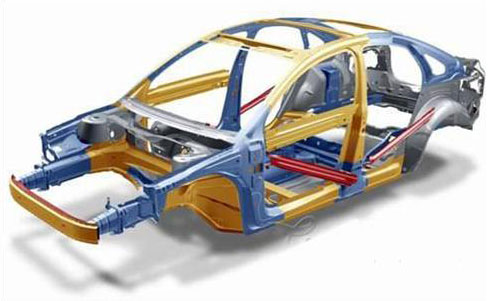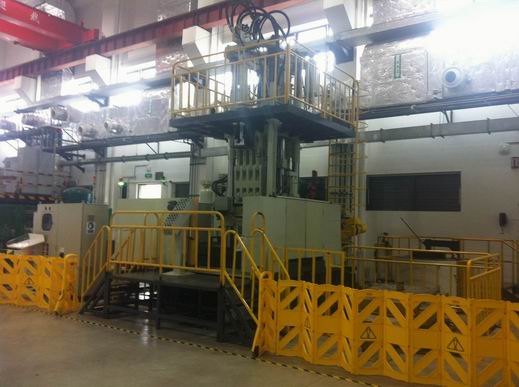network connections:http://www.sinomg.com/news/show.php?itemid=23173
The world's first "magnesium alloy special vertical extrusion casting machine" reported in the article was developed by Suzhou Sanji Casting Equipment Co., Ltd.
Summary: The world's first "magnesium alloy special vertical extrusion casting machine" has been installed and debugged
Release date: April 4, 2014 Source: China Automotive News Views: 30

General Motors China Forward looking Technology Research Center announced today that the world's first "magnesium alloy dedicated vertical extrusion casting machine" has been installed and debugged, and the first batch of process validation components have been successfully tested. This marks a new breakthrough for General Motors in automotive lightweighting research.
The "Magnesium Alloy Vertical Squeezing Casting Machine" is jointly designed by the Lightweight Materials Research Team under General Motors Global R&D Center and the Lightweight Technology Research Team of General Motors China Academy of Sciences, and developed in collaboration with local equipment suppliers in China. As the world's first magnesium alloy dedicated vertical extrusion casting system, this equipment not only improves the density of castings through vertical extrusion, but also eliminates traditional magnesium alloy casting difficulties such as oxide inclusions through the melting and airtight transmission of protective atmosphere for magnesium alloy raw materials, thereby greatly improving the performance and quality of cast magnesium alloy automotive parts.
This means that future automotive components can not only replace more aluminum alloys with high-performance magnesium alloys in materials, achieving a qualitative change in material lightweighting, but also have the potential to replace some high cost forged parts with cast parts in processes, "said Dr. Wang Jianfeng, research department manager and leader of the lightweight technology research team at General Motors China Academy of Sciences.
As a substitute for commonly used automotive material aluminum alloy, magnesium alloy is currently the lightest engineering metal material, with a weight reduction of about 30% compared to aluminum alloy of the same volume. According to conventional statistics, for every 150 kilograms reduction in vehicle weight, fuel consumption will correspondingly decrease by about 7%. Moreover, in recent years, China's raw magnesium production has accounted for over 80% of global production.
Dr. Wang Jianfeng stated, "The series of achievements in magnesium alloy research not only gradually meet consumers' demands for lower fuel consumption and higher cost-effectiveness in automotive products, but also promote the utilization of China's magnesium alloy resource advantages in the automotive parts field, accelerate technological innovation in the upstream and downstream of the automotive industry, and benefit the development of General Motors in China and even the automotive industry in China and globally
The casting and forming laboratory for magnesium alloy vertical extrusion casting is part of the first phase of General Motors China Forward looking Technology Research Center, also known as the "Advanced Materials Laboratory Building". It collaborates with multiple laboratories such as the Mechanics Laboratory, Microanalysis Laboratory, Metallographic and Electrochemical Analysis Laboratory to focus on the highly promising field of automotive lightweight materials. In 2013, the magnesium alloy luggage cover plate developed and mass-produced by this lightweight research team was awarded the "2013 Excellent Application Award" by the International Magnesium Association.





 Official Wechat Public Number
Official Wechat Public Number